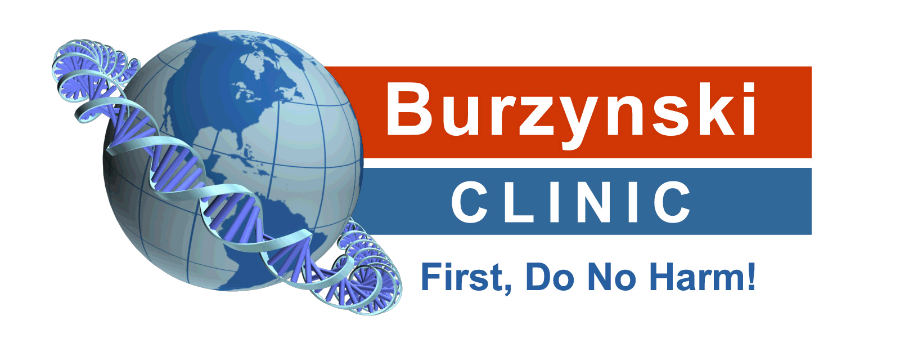Case Studies About Precision Cancer Care | Burzynski Clinic
Monday, August 18, 2025 | By: Burzynski Clinic
Advancements in cancer treatment have dramatically shifted in recent years, with targeted therapies now leading the way in personalized care. These treatments focus on specific molecular markers to attack cancer cells more precisely, improving outcomes and reducing side effects. In this post, we’ll explore what targeted therapies are, highlight examples like HER2-positive breast cancer and lung cancers with genetic mutations, and explain how these cutting-edge approaches are transforming cancer care—providing patients with greater hope and clarity.
Understanding Targeted Therapies in Oncology
Targeted therapies have transformed cancer treatment by focusing on specific molecular targets, offering a more precise approach with fewer side effects compared to traditional chemotherapy. Dr. Stanislaw Burzynski has embraced this precision medicine approach through innovations like Antineoplaston therapy, tailoring treatments to each patient’s unique needs for better outcomes and less toxicity. This personalized care continues to offer new hope for those facing cancer.
What are Targeted Therapies?
Targeted therapies are designed to target specific genes or proteins that contribute to the growth and survival of cancer cells. Treatment involves analyzing the individual patient’s cancer at a molecular level, allowing for personalized medicine approaches. The goal is to disrupt the cancer's growth signals, either by blocking the receptor at the surface of the cell or interrupting the biochemical pathways inside the cell that promote cancer cell proliferation.
Some prominent examples of targeted therapies include:
- Monoclonal Antibodies: These are lab-created molecules that can bind to specific targets found on cancer cells. One example is the drug trastuzumab (Herceptin), used to treat HER2-positive breast cancer. Herceptin attaches to the HER2 protein, which is overexpressed in some breast cancer cells, signaling the immune system to destroy those cells.
- Small Molecule Inhibitors: These drugs can penetrate cells and inhibit specific proteins that drive cancer cell growth. Imatinib (Gleevec) is a prime example that has transformed the treatment of chronic myeloid leukemia (CML).
HER2-Positive Breast Cancer
The Impact of HER2-Targeted Therapies
Breast cancer is multifaceted, with different subtypes requiring tailored treatments. HER2-positive breast cancer is aggressive, but it has seen drastic improvements in survival rates thanks to advancements in targeted therapies.
Mechanism of Action
The HER2 gene makes a protein that promotes the growth of cancer cells. In some breast cancers, this gene is amplified, leading to an overproduction of the HER2 protein. Trastuzumab (Herceptin) binds to the HER2 receptor, blocking its signaling pathway and preventing cancer cell proliferation. Additionally, the immune system is recruited to attack the marked cells, enhancing the effectiveness of the treatment.
Success Stories
Patients who have undergone treatment with trastuzumab have experienced significant improvement in disease-free survival rates. A study published in the New England Journal of Medicine showed that the addition of Herceptin to traditional chemotherapy increased the chance of 10-year survival by 30% in patients with early-stage HER2-positive breast cancer, highlighting the importance of precision oncology.
Chronic Myeloid Leukemia (CML)
Turning a Fatal Diagnosis into Manageable Care
Once a death sentence, chronic myeloid leukemia (CML) is now manageable due to targeted therapies such as imatinib (Gleevec).
Understanding CML
CML is a type of cancer that affects the blood and bone marrow, identified by an overproduction of myeloid cells. A genetic mutation called the BCR-ABL fusion gene leads to the uncontrolled growth of these cells.
Imatinib's Role
Imatinib specifically inhibits the BCR-ABL protein, effectively halting the proliferation of CML cells. By targeting this protein, imatinib has transformed the prognosis for CML patients. Ongoing clinical trials continue to investigate its use in combination with other therapies to enhance effectiveness and reduce resistance.
Chronic Treatment Regimens
Many patients can maintain a normal lifestyle with continuous treatment and monitoring. Long-term studies highlight that most patients can attain complete molecular remission, and many can stop therapy for an extended duration without relapse.
Lung Cancer with Genetic Mutations
Advancements in Gene-Targeted Therapies
Lung cancer has traditionally been challenging to treat, but with the advent of gene-targeted therapies, patients with specific genetic mutations, such as EGFR mutations, are seeing significant benefits.
EGFR Mutations and Targeted Treatment
Epidermal Growth Factor Receptor (EGFR) mutations are found in a portion of lung adenocarcinomas. Targeted treatments like gefitinib (Iressa) and erlotinib (Tarceva) target and block the mutated EGFR protein, effectively reducing tumor size and preventing cancer cell growth.
Patient Outcomes
A study conducted on patients with advanced EGFR-mutated non-small cell lung cancer showed that those treated with targeted treatments experienced a more than 70% response rate, compared to only 30% for those on traditional chemotherapy. This marked improvement exemplifies how understanding genetic mutations can lead to more effective treatment options.
Empowering Patients Through Personalized Oncology
Personalized oncology is revolutionizing cancer treatment, offering better outcomes, fewer side effects, and improved quality of life through targeted therapies. By focusing on the genetic aspects of cancer, patients now have more effective, tailored options. Empowering patients with personalized care is at the forefront of modern cancer treatment. Dr. Stanislaw Burzynski and his highly qualified clinical team believe in a customized approach to patient care. Book an appointment at the Burzynski Clinic in Houston, TX. Take control of your health today!

